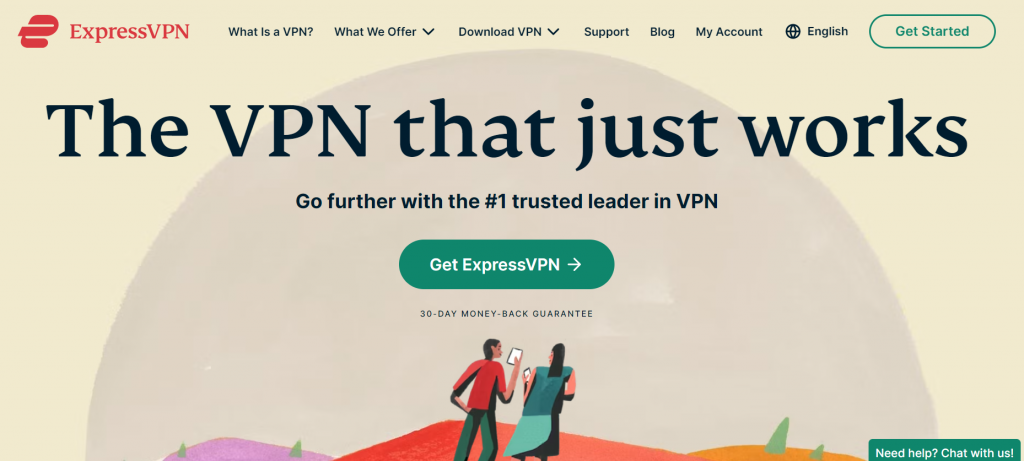
Are you concerned about your online privacy and security? Do you want to access geo-restricted content or bypass internet censorship? If so, then a virtual private network (VPN) might be the solution for you. However, many people wonder if using a VPN is legal or not. In this blog post, we will explore the laws and regulations regarding VPN usage in the United States and answer one of the most frequently asked questions: Is it legal to use a VPN? So buckle up and get ready to dive into the world of VPNs!
What is a VPN?
A VPN, or virtual private network, is a technology that provides a secure and encrypted connection over the internet. It creates a tunnel between your device and the VPN server, which encrypts all your data traffic and hides your IP address from prying eyes. This means that you can surf the web anonymously without worrying about being tracked by advertisers, hackers or government agencies.
VPNs were initially designed for corporate users who needed to connect securely to their workplace networks from remote locations. But nowadays, they are widely used by individuals who want to protect their online privacy and security. With a VPN, you can bypass internet censorship in countries like China or Iran, access geo-restricted content such as Netflix US or BBC iPlayer from anywhere in the world.
In addition to its privacy benefits, using a VPN also helps prevent cyberattacks like phishing scams and malware infections while browsing public Wi-Fi hotspots at cafes or airports. Some people even use VPNs for torrenting files safely without getting caught by copyright trolls.
A VPN is an essential tool for anyone who values their online privacy and wants to stay safe on the internet.
How do VPNs Work?
VPNs, or Virtual Private Networks, work by creating an encrypted tunnel between your device and the internet. When you connect to a VPN server, all of your online traffic is routed through this secure connection. This means that no one else on the network can see what you’re doing online – not even your ISP.
To establish this secure connection, a VPN uses various encryption protocols such as OpenVPN and IPSec. These protocols encrypt data before it leaves your device and decrypt it when it arrives at its intended destination. This process ensures that all information sent over the internet remains private.
Additionally, VPNs use virtual IP addresses to hide users’ real IP addresses and location from prying eyes. By assigning you a new IP address based on the server location you choose to connect to, a VPN allows you to access content that may be blocked in your region due to geo-restrictions.
While there are several different types of VPNs available today with varying levels of security and privacy protection features included in them; they all work towards ensuring user anonymity and data security while browsing the web.
What are the Benefits of Using a VPN?

Using a VPN can provide numerous benefits for its users. Firstly, it allows for increased online privacy and security. When connected to a VPN, all internet traffic is encrypted and routed through the VPN server, making it much more difficult for third parties to track your online activity or steal sensitive information.
Another benefit of using a VPN is that it can help you bypass geo-restrictions on content. Many streaming platforms such as Netflix have different libraries available in different countries, but by connecting to a server in another country via your VPN, you can access this content from anywhere in the world.
VPNs also offer an additional layer of protection when using public Wi-Fi networks. These networks are often unsecured and therefore vulnerable to hacking attempts, but by connecting through a VPN you can ensure that your data remains secure even on these risky connections.
Many businesses use VPNs as they allow remote workers to securely access company resources without compromising security. With so many potential benefits on offer, it’s no surprise that more and more people are turning to virtual private networks as an essential tool for their online security needs.
Is it Legal to Use a VPN in the United States?
When it comes to the legality of using a VPN in the United States, things can get a little murky. The simple answer is that yes, it’s legal to use a VPN in the U.
S. However, there are certain instances where its use may be frowned upon or even illegal.
For example, if you’re using a VPN for illegal activities such as downloading copyrighted content or engaging in cybercrime, then your actions could land you in hot water with law enforcement.
Additionally, some companies and organizations may have policies against their employees using VPNs while on their networks. This is because they want to ensure they maintain control over who has access to sensitive information on their network.
For personal use and legitimate purposes such as protecting your online privacy and security, using a VPN is completely legal in the United States. Just make sure you’re not breaking any laws or violating any company policies while doing so.
Get Best VPN Service With ExpressVPN

In today’s digital age, the use of a VPN has become increasingly necessary to protect our online privacy and security. While there may be some legal concerns regarding its usage in certain countries, using a VPN is generally legal and safe.
To ensure maximum protection while browsing the internet, it’s important to choose a reliable VPN service provider that offers top-notch security features. One such provider is ExpressVPN – a trusted name in the world of VPNs.
ExpressVPN offers fast speeds, military-grade encryption, and an easy-to-use interface that makes it accessible for users of all levels. Plus, they have servers located all around the globe which means you can easily access any content from anywhere you want.
So why wait? Get your hands on ExpressVPN now and enjoy secure browsing without any restrictions or worries!





